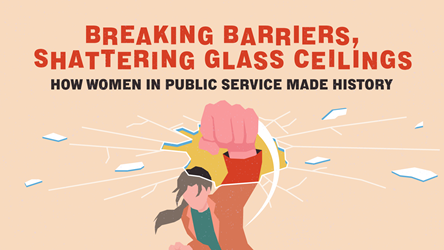Working With Mr Othman Wok
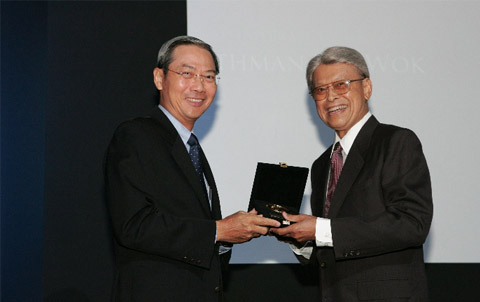
Source: Ministry of Information, Communications and the Arts Collection, courtesy of National Archives of Singapore
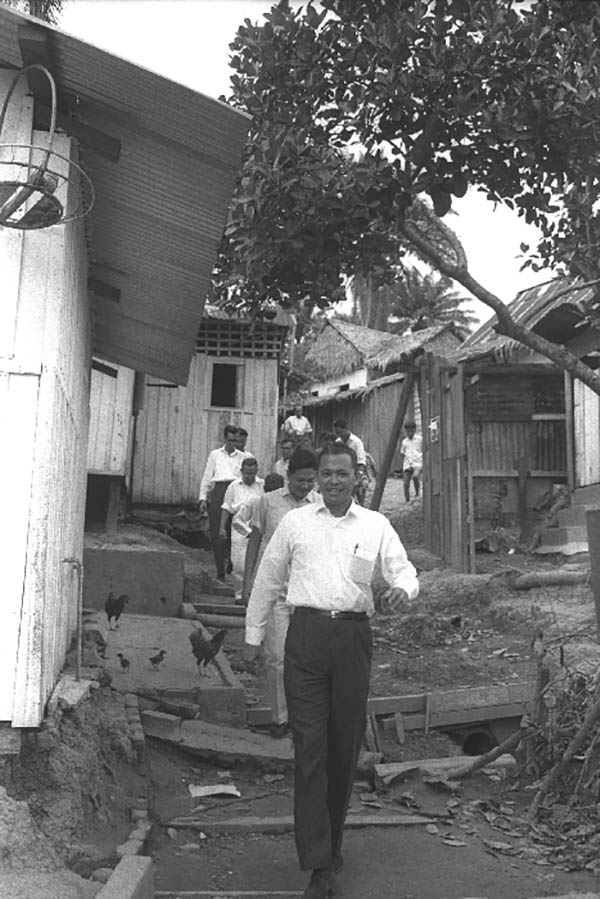
Source: Ministry of Information and the Arts Collection, courtesy of National Archives of Singapore
A lucky break
It was Singapore’s first president, Mr Yusof Ishak, who gave Mr Othman his break, in 1946. Then the managing editor of Utusan Melayu, Mr Yusof personally recruited Mr Othman for clerical duties at the newspaper.
In less than a week, the 22-year-old was offered a reporting job after Mr Yusof fired a journalist. He jumped at the offer.
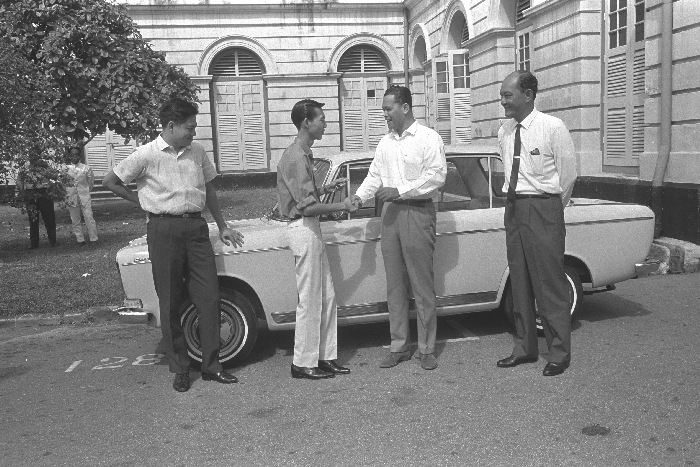
Source: Ministry of Information and the Arts Collection, courtesy of National Archives of Singapore
The young man – often described as dashing and friendly – became Chief Reporter in 1951. That year, he also turned unionist, marking the start of his political awakening.
Mr Lee Kuan Yew, who was Utusan Melayu’s first legal adviser, was a good friend. When Mr Lee formed the People’s Action Party in 1954, Mr Othman was among the first to join – convinced of the party’s vision to serve the common people.
After winning a seat in the 1963 election, Mr Othman was made Minister of Social Affairs – an appointment he would hold for 14 years even as the scope of the Ministry evolved over time. Overnight, the newsman was placed in charge of a massive ministry that oversaw diverse matters from sports to social issues, and employed thousands. He also grappled with new and tough subjects, including the signing of execution orders to hang death row criminals.
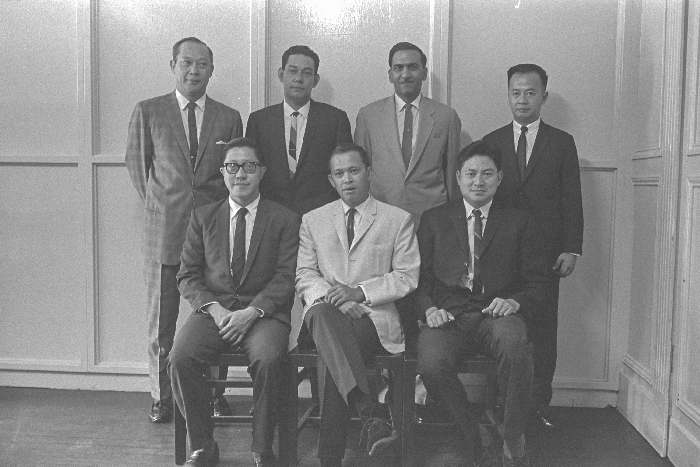
Source: Ministry of Information and the Arts Collection, courtesy of National Archives of Singapore
A living example of compassion
Mrs Janet Yee, 83, a veteran social worker who joined the Social Welfare Department in 1955, remembers Mr Othman as approachable and keen to know the problems that officers faced on the ground.
He also made it a point to attend the annual tea party for foster parents and the Sports Days organised by the various children’s homes, she told Challenge.
“He was always friendly,” said Mrs Yee. “He would pay attention to the children, and showed interest towards them. He would ask ‘What are you doing?’ and ‘Are you doing well?’”
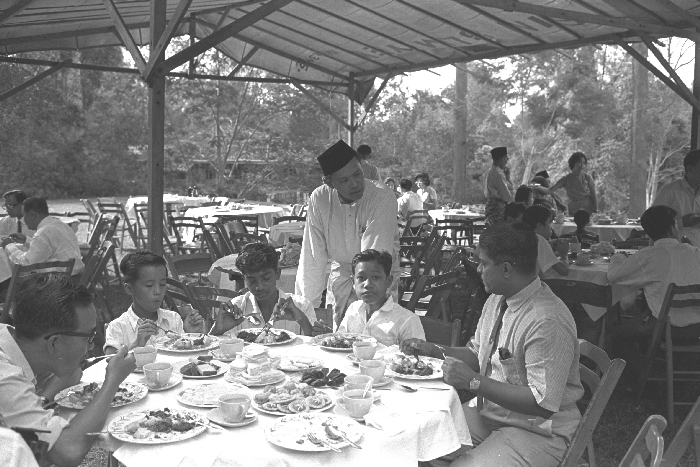
Source: Ministry of Information and the Arts Collection, courtesy of National Archives of Singapore
In fact, it was at such a tea party in 1974 that he met Khairi, who was to become his adopted son. Mr Othman recalled in the book Helping Hands, Touching Lives that the 18-month-old kept following him the entire afternoon and even held his hand.
Seeing their special connection, Mr Othman’s Permanent Secretary (PS) asked the minister if he would like to adopt the boy, whose parents had given him up to the Social Welfare Department.
Help first
Another veteran social worker, Mr K V Veloo, 83, said his interactions with Mr Othman increased when he became head of the Probation & Aftercare Service in 1971.
“I attended the Heads of Department meeting, which he chaired. As a young officer, I looked upon such meetings with trepidation,” Mr Veloo told Challenge.
“Getting my homework done was one thing, but being able to answer questions raised ad lib was daunting. Minister knew my discomfort. He allayed my initial fears with his usual humane quality of compassion, understanding and goodwill.”
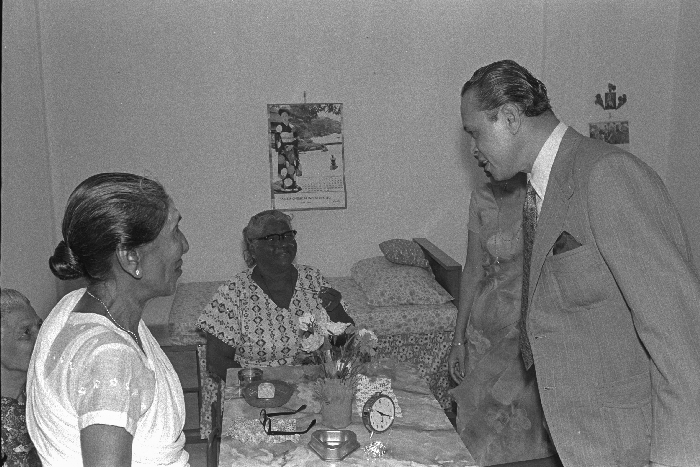
Source: Ministry of Information and the Arts Collection, courtesy of National Archives of Singapore
Mr Veloo said the minister expressed tremendous empathy and compassion for the underclass and handicapped.
“He once told me to service the needs of clients without delay wherever possible. Payment and subsidies can come later. That became my maxim as I grew older and more experienced,” said Mr Veloo.
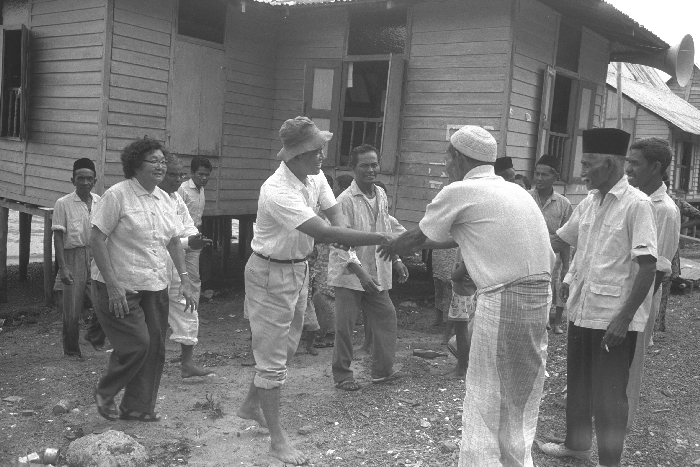
Source: Ministry of Information and the Arts Collection, courtesy of National Archives of Singapore
Building a strong Muslim community
As the only Muslim minister in the Cabinet, Mr Othman also became the de factominister in charge of Muslim affairs.
His legacy includes the setting of MUIS (the Islamic Religious Council of Singapore) and later, the Mosque Building Fund (MBF).
Mr Asmawi Mashuri, who has been with MUIS since it was set up in 1968, told Challenge: “What was important for Mr Othman was the future direction of the Malay Muslim community.”
But when MUIS was set up, it “was not welcomed by many in the Malay community”, shared Mr Asmawi. People were sceptical of MUIS’ role and feared government control, particularly with the centralisation of zakat collection and distribution.
Mr Othman knew the challenges that MUIS (which had only six to seven staff) faced on the ground. The minister – who knew every MUIS staff by name – encouraged them not to give up.
Recounted Mr Asmawi: “He said to me: ‘Asmawi, work hard for MUIS because MUIS is the only organisation that can bring the Malay community forward.”
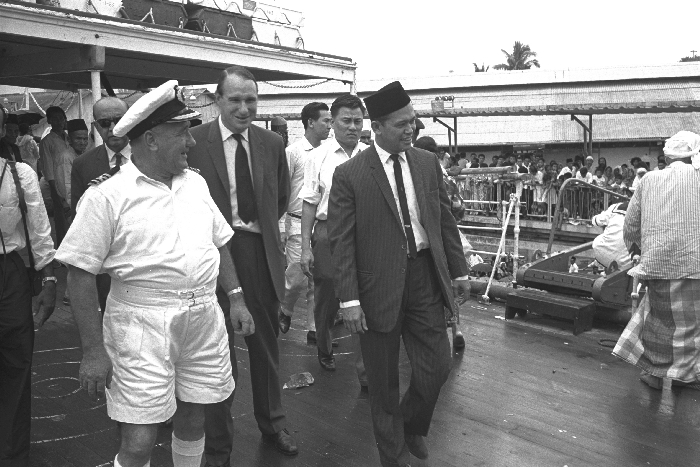
Source: Ministry of Information and the Arts Collection, courtesy of National Archives of Singapore
To show support for MUIS, Mr Othman attended every event he could. “One thing he always reminded us was the difficulties of getting donations to build our mosques; that’s why the MBF was introduced,” said Mr Asmawi.
“At that time, the Toa Payoh residents really struggled to build their mosque. Luckily we had him and the support from the Prime Minister to create the MBF. From there, we accumulated funds and successfully built our first mosque, Masjid Mujahirin.”
There were no barriers between the minister and his staff, who would visit him during festive celebrations. “When we meet, we would talk, say hello, shake hands, make jokes,” Mr Asmawi said. “He’s like a friend.”
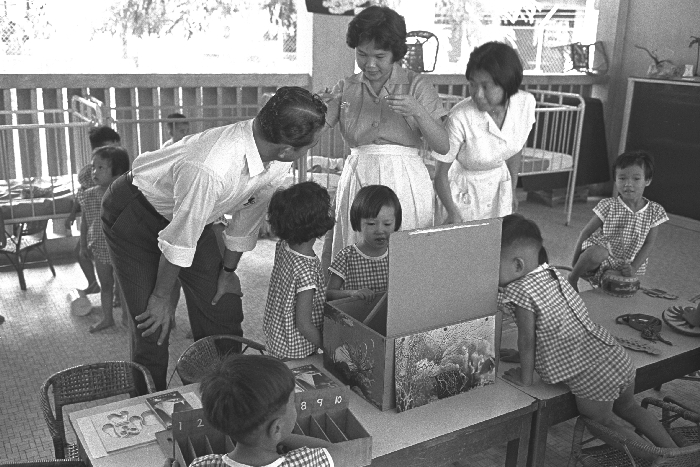
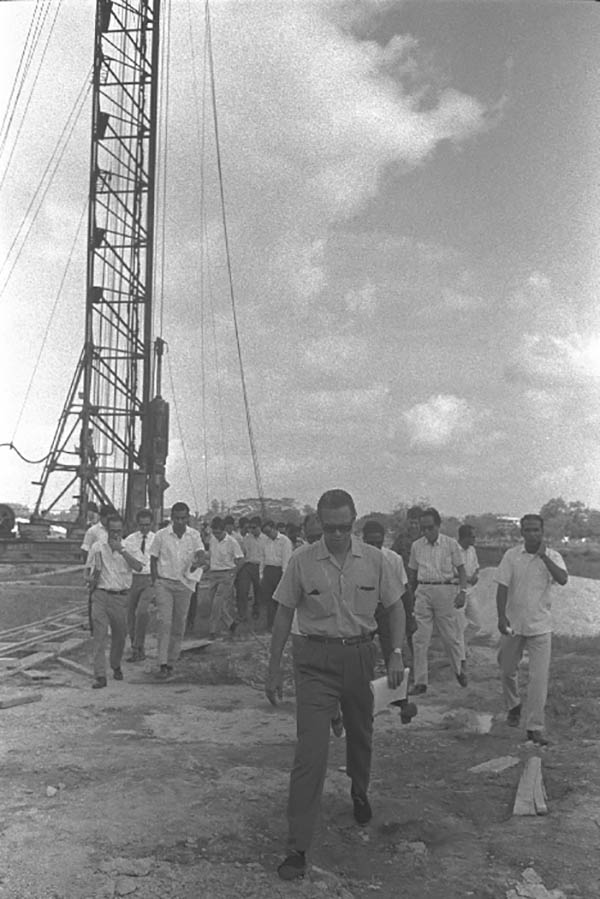
Source: Ministry of Information and the Arts Collection, courtesy of National Archives of Singapore
- POSTED ON
Apr 25, 2017
- TEXT BY
Bridgette See





